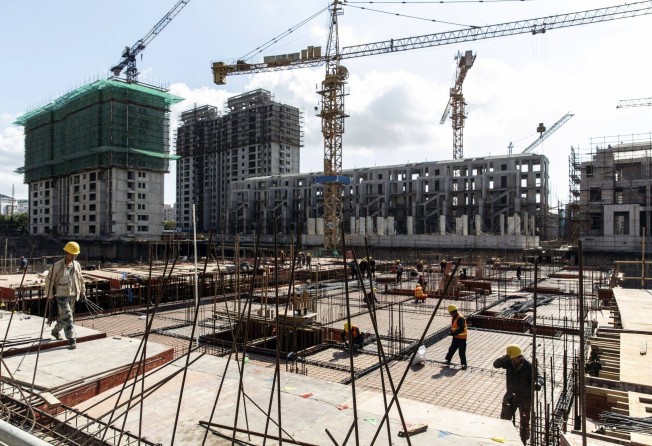
Risks to China’s financial system to rise as property downturn persists, Moody’s says
- The outlook for China’s property sector remains negative because of sluggish demand and weak contracted sales, Moody’s says
- Growth forecasts for China cut to 3 per cent this year and 4 per cent in 2023

The risks to the stability of China’s financial system are rising because of the downturn in the country’s property sector and a slowing economy, Moody’s Investors Service said.
The rating agency said in a report released on Thursday that its outlook for the nation’s property sector “remains negative on sluggish demand and weak contracted sales”, although policy support offered by the Chinese authorities could help ease the liquidity burden of some developers.
While the property sector downturn is testing China’s systemic stability, at the same time pandemic disruption and rising geopolitical tensions are also weighing on growth, the report said.

“Although the authorities continue to have tools to prevent a systemic financial crisis, some of these buffers are weakening, and could pose risks if the property downturn endures,” Lillian Li, a Moody’s vice-president and senior credit officer wrote in the report.
As a result of the weakness surrounding the property industry, Moody’s cut its growth forecasts for China to 3 per cent this year and 4 per cent in 2023.
China’s securities watchdog on Monday announced five measures, including allowing cash-strapped mainland developers to raise equity refinancing after a ban of six years. Analysts and industry players hailed the move as a big step to boost the property sector following a 16-point rescue plan earlier last month.
Six major state-owned banks extended loans totalling 1.27 trillion yuan (US$180 billion) to at least 17 developers last Thursday, a day after Beijing confirmed the rescue plan.
China’s financial system is inextricably linked to the country’s real estate sector. While banks’ direct exposure to risks from the property sector is limited, indirect exposure is bigger, according to Moody’s. Some of the indirect risks include lending to downstream industries along the property sector supply chain and losses resulting from the asset devaluation of collateral from property price declines.
While large banks remain well-capitalised and can absorb significant losses, smaller banks are more vulnerable to the risks related to the property industry, Moody’s noted.
In addition, the central government could enlist support for recapitalisation funds from policy banks, local government and state-owned enterprises, which might increase the debt burden and hurt banks’ financial strength, Moody’s said.
The changing domestic and external macro environment is also contributing to lower policy effectiveness and the government’s capacity to provide support has become more constrained, Li said.
“While financial stability remains a top priority, the authorities have become more selective in their willingness to provide support,” she said.
Separately, a report released by Fitch Ratings on Thursday showed the liquidity of indebted developers continues to deteriorate. Their liquidity was far lower than that of private and state-backed developers at the end of the third quarter.